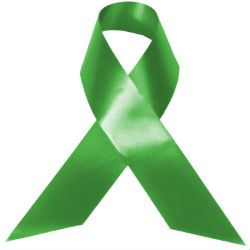4 myths about donating tissues and organs

Source: transplant.ca
Myth: Transplants are experimental and rarely successful.
Myth: Transplants are experimental and rarely successful.
Fact: Generally, transplantation success rates are excellent – between 80 to 95 per cent of patients are doing well one year after their transplant. Overall, transplant recipients enjoy an excellent quality of life, and are able to work, attend school, travel, and play sports. They are encouraged to engage in all activities.
Myth: The donor’s family will be charged the extra costs involved in organ donation.
Myth: The donor’s family will be charged the extra costs involved in organ donation.
Fact: In Canada, organ retrieval is covered by the healthcare system. There is no cost to the donor's family for this surgical procedure.
Myth: Having "organ donor" noted on your driver's license or carrying a donor card or provincial health card is all you have to do to become a donor.
Myth: Having "organ donor" noted on your driver's license or carrying a donor card or provincial health card is all you have to do to become a donor.
Fact: While a signed donor card and a driver's license with an "organ donor" designation are legal documents, organ and tissue donation must always be discussed with family members prior to the donation. For that reason, it is very important that you discuss your wishes with your family. At the same time, find out their wishes. Have this discussion – save a life!
Myth: If doctors see my signed donor card they won’t work as hard to save my life.
Myth: If doctors see my signed donor card they won’t work as hard to save my life.
Fact: Doctors who care for seriously injured patients are not involved with the transplant process. Their only concern is to save lives. Organ donation is only considered after all attempts to save your life have failed, death has been declared, and your family has been consulted regarding your wishes.
How to sign up as a donor
The Régie de l'assurance maladie du Québec offers you two options to formalize your consent to donate organs or tissues.
You may submit your name to the Registre des consentements au don d'organes et de tissus. To do so, fill out the form, which is mailed to you along with your Health Insurance Card renewal notice or which you can obtain directly from the Régie website.
You can also sign a consent sticker and place it on the back of your Québec Health Insurance Card. The sticker is sent to you along with your Health Insurance Card, both when you obtain and when you renew your card. Organ and tissue donation stickers are also available at local CLSCs and hospitals.
For more information, please visit http://www.signezdon.gouv.qc.ca/. (French only)
Online sources and useful resources


